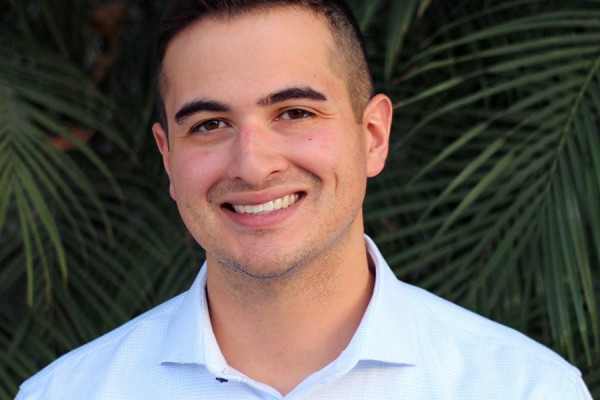 His work developing cleaner energy sources has earned UWindsor professor Marcus Drover the 2020 John Charles Polanyi Prize in Chemistry.
His work developing cleaner energy sources has earned UWindsor professor Marcus Drover the 2020 John Charles Polanyi Prize in Chemistry.
UWindsor professor Marcus Drover has been awarded the 2020 John Charles Polanyi Prize in Chemistry in recognition of his work in developing cleaner energy sources as an early-career researcher in the province of Ontario. The award, valued at $20,000, is given to five Ontario researchers in the fields of Physics, Chemistry, Physiology or Medicine, Literature, and Economic Science.
Annually since 1987, the Council of Ontario Universities has recognized five researchers in the early stages of their careers, in honour of Dr. Polanyi, the 1986 recipient of the Nobel Prize in Chemistry. This is only the second time a UWindsor researcher has received this award; in 1996, Sang-Chul Suh from the Department of Economics won.
“It is an incredible honour to win such a prestigious prize in a highly competitive pool of early-career researchers — and moreover, to be the first to win in the natural sciences in the history of UWindsor,” says Dr. Drover. “It’s an incredible feeling.”
Drover, hired in 2019, is an assistant professor in the Department of Chemistry and Biochemistry.
As a synthetic chemist, Drover says he likes to make “molecules with a purpose, molecules with the potential to combat the global energy crisis as rates of fossil fuel consumption continue to skyrocket.
“To ensure the well-being of future generations, it is imperative that we work to curtail greenhouse gas emissions, invest in alternative energy sources, and discover superior and more efficient routes for the synthesis of speciality chemicals, such as pharmaceuticals for health, agrochemicals to enhance crop yield, and advanced chemicals such as those found in organic light emitting polymers for display technologies.”
In spring 2020, he received an NSERC Discovery grant and early-career supplement for his research program, “New Technologies for Sustainable Chemistry: An Organometallic Future in Clean Energy.” Drover says his research team believes in an “organometallic future” to clean energy, employing chemical synthesis and metal-based reactivity to target these goals.
“My group’s interests comprise concepts broadly related to catalysis using novel constructs having structure and/or bonding properties that can be leveraged for the development of new reactions with creative design elements inspired by nature,” he says.
“We are looking at alternative fuels, and energy-based research by revamping and reusing waste products and turning them into value-added molecules and sources of energy.”
In March 2020, as the academic conference season shut down in response to the pandemic, Drover co-founded an online chemistry discussion group that allowed chemists to share research and forge new collaborative partnerships. The Global Inorganic Discussion Weekend continues to draw a crowd and has now hosted more than more than 80 speakers from around the world.
Drover says starting his career at UWindsor has been incredible — phenomenal facilities and openness of others to collaboration really makes the University a fantastic training ground for young inorganic chemists.
“At the end of the day, students need to gain a certain skill-set, and they will most certainly get that opportunity here,” he says. “It is inspiring and satisfying to apply transformations that could be applied to actual real-life problems, and most importantly, we’re having a lot of fun doing it!”
—Sara Elliott
